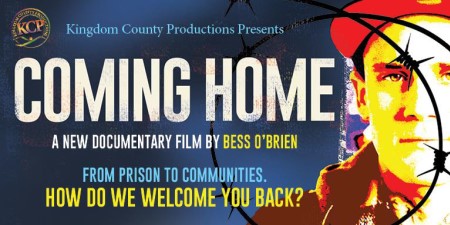Innovative Restorative Justice in Vermont
In recent years, Vermont has received attention for its use of a restorative practice called Circles of Support and Accountability (CoSA). The COSA program operates at Community Justice Centers across the state, supported by funding from the Department of Corrections. Read on to learn more about CoSA and Restorative Justice in Vermont.
Circles of Support and Accountability (CoSA)
CoSA is a volunteer-driven and community-based model for enhancing community safety though supporting high-risk offenders that are returning home to their communities after a period of incarceration while holding them accountable to pro-social community expectations. Although the model has typically been used to support high-risk sex offenders and has proven a high success rate in reducing recidivism, Vermont has extended use of the practice to other types of offenses.
The most critical component of the CoSA model is that it centers on developing relationships between volunteers and the core member (the person convicted of an offense) based in mutual respect and grounded in shared commitment to the public safety. The goal of CoSA is No More Victims. Typically meeting weekly for a year, the circle will support core members to work through the challenges involved with re-entering community, such as employment, transportation, housing, health care, and help core members remain accountable to the work of well-being and reducing overall risk of reoffending.
Check out this article from The Appeal about the success of the CoSA model in Vermont and the positive impact it's having on people in our communities
Coming Home - Documentary about CoSA by Vermont filmmaker Bess O'Brien
The film Coming Home provides an in-depth look at the work of Circles of Support and Accountability (CoSAs) in Vermont, focusing on five individuals as they navigate the challenges of reentering their communities after incarceration. Coming Home takes a close-up and powerful look at this COSA process, the struggles, and challenges of folks coming out of prison, and the successes of this restorative approach to reentry.
View the Coming Home film (use the Password "cosa")
Bess O’Brien is an award-winning documentary filmmaker and theater producer whose work focuses on pressing social issues. Her films shed light on the human stories behind opiate addiction, foster care, domestic violence, eating disorders, incarceration, and bullying.
Learn More about CoSA by clicking the following links:
Read the summary and/or comprehensive report conducted by University of Vermont Sociology Professor Kathryn Fox regarding Vermont's CoSA program:
- Summary of the CoSA Report (16 pages)
- Final CoSA Report (64 pages)
- Listen to a Vermont Public Radio Vermont Edition segment: Addressing Recidivism with Community
- Read an article in the Journal Sentinel about Vermont's CoSA program following the Coming Home Documentary
- Read more about the CoSA model from the National Reentry Resource Center
- Click the image below to read an infographic about CoSA
What is Restorative Justice?
Vermont has become a nationally recognized leader in the development of community-based restorative justice and services to victims. The goal of restorative justice approaches to give victims an active voice and role in the process of justice, for offenders to take responsibility, understand the harm they have caused, and make amends, and to build or restore relationships in communities that may prevent future harm. Community-based restorative justice processes include not only those directly involved or impacted by crime but also community members who are invested in promoting accountability and reparations.
Vermont even wrote restorative justice into the law (read how the Vermont Legislature has written the use of Restorative Justice practices into law).
In recognizing that crime causes injury to people and communities, restorative practices seek to repair those injuries by encouraging and supporting parties with a stake in a particular offense to participate in its resolution.
There are many types of restorative practices, including circles, restorative conferences or panels, Circles of Support and Accountability, and Family Group Conferencing.
Restorative Practices seek to:
- Hold offenders accountable for trying to identify the harm done and determining what must be done to address that harm
- Increase communication, improve problem solving and promote new ways to deal with conflict
- Advance neighborliness and contribute to building a strong sense of community
Department of Corrections and Community Justice Centers
DOC provides funding and support to Community Justice Centers who create opportunities and space for communities to address conflict, harm, and crime outside the criminal justice system. By facilitating restorative practices, staff and volunteers at Community Justice Centers help to ensure that people affected by harm or crime have a choice in the way that those responsible can take accountability and make amends. Community Justice Centers also work proactively to teach and facilitate restorative practices as a way to prevent harm, and work with people who are re-entering communities after a period of incarceration to be successful.
Contacts:
Derek Miodownik, Department of Corrections (derek.miodownik@vermont.gov) or email COSA@vermont.gov



